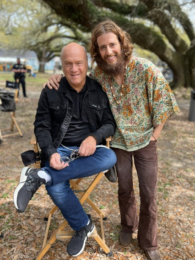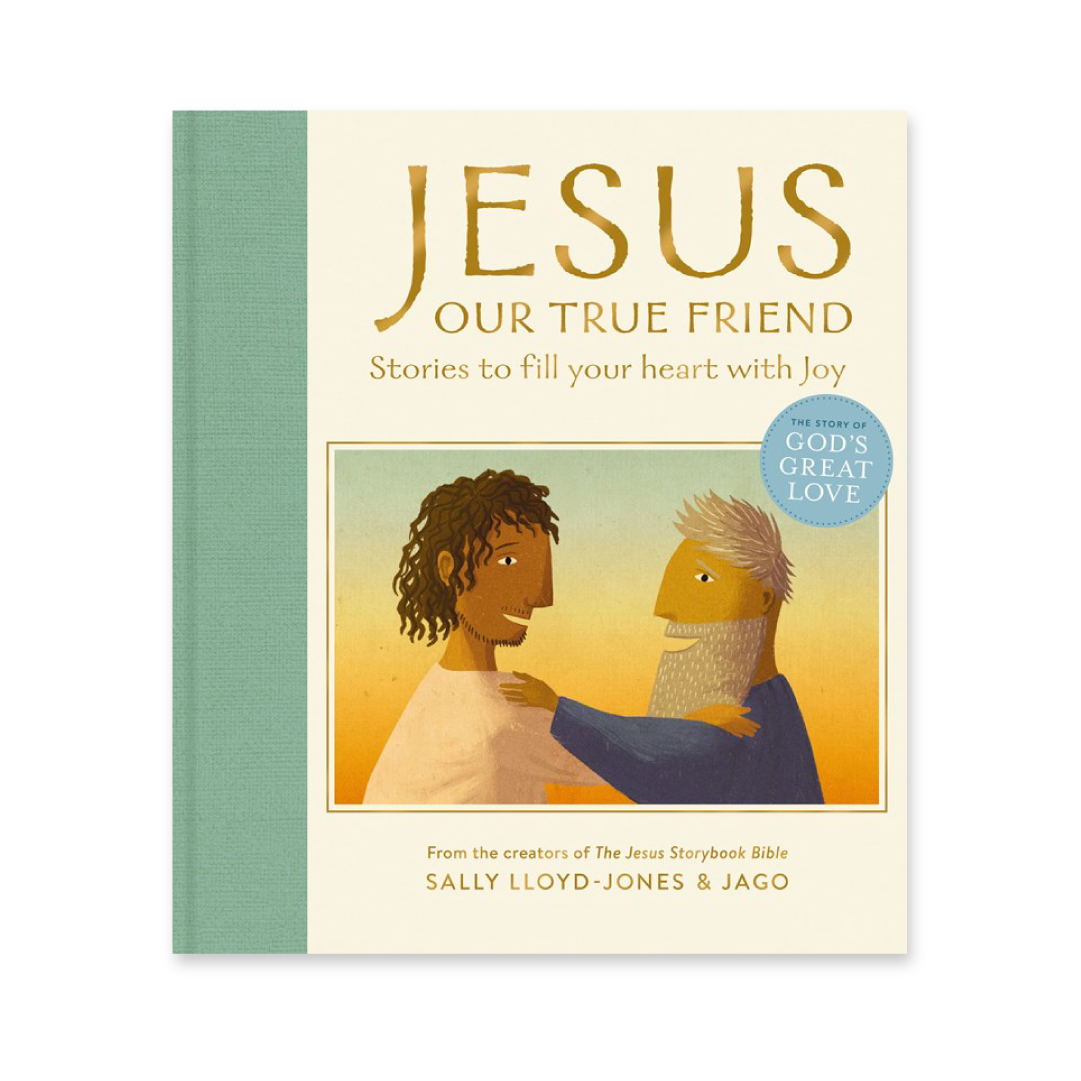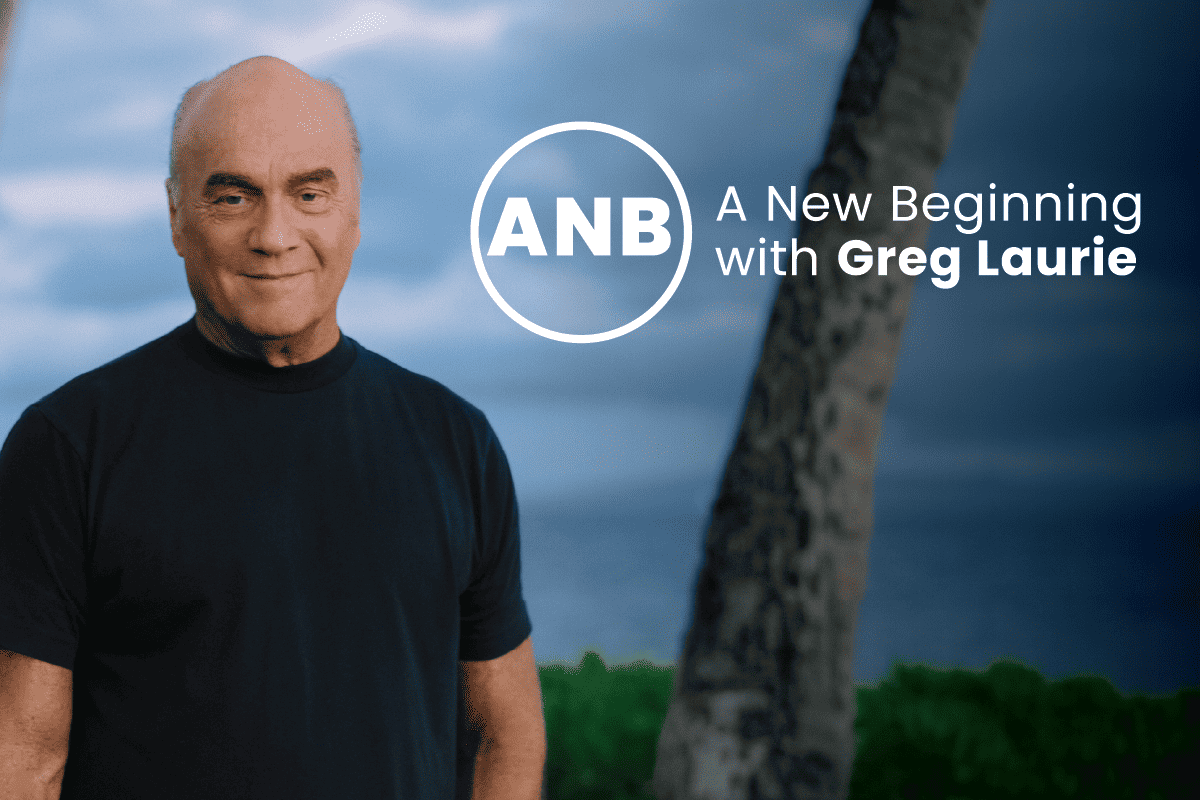One of the most captivating and distinctive personalities in the upcoming biopic, Jesus Revolution, is Lonnie Frisbee, whose memory is being revived through a brilliant portrayal by actor Jonathan Roumie.

Lonnie was the face and a catalyzing force of the Jesus Movement that rippled through the late 1960s and early 1970s. During that time Lonnie had a profound impact on my life, and for a short time, he was a spiritual mentor to me as well.
It’s no surprise to me that interest in Lonnie’s story lingers decades after his death. He was one of the fixtures of our culture. Lonnie’s down-to-earth and appealing style of preaching was tempered with a gentle spirit, and good humor. He spoke in hippie patter (phrases like “tripping,” “far out,” and “outta sight” could be heard in his sermons), was totally authentic, original, and on fire for the Lord. But sometimes had a penchant for theatrics.
He pushed the Jesus Movement in a charismatic direction, a path that many in the traditional church didn’t want to go.
The Era Needed Lonnie Frisbee
However, Lonnie was exactly what the moment called for. It was time for change, and he was the right person at the right time. He might not have fit the strong, virile image traditional churchgoers expected of a great leader—he was small in stature and seemed fragile. And yet, his guru-like hippy shirts, long, brown hair parted in the middle, full beard, and leather sandals made him look like the quintessential portrait of Jesus.
But Lonnie had the devil on his back from a young age, being raised in a dysfunctional home. Both of his parents were still in their teens when they married, and he was exposed to sketchy characters as a child. He was sexually victimized by an adult neighbor, which, according to Lonnie, “broke the foundations of my faith.” This pushed him in the wrong direction as he dove headfirst into drug culture during his teens.
A talented artist on scholarship, Lonnie went to college but quickly dropped out and dove headlong into the hippie movement, ingesting hallucinogenic drugs and even experimented with the occult and mystical practices. Like thousands of others, Lonnie headed to San Francisco’s Haight Ashbury district to “tune in, turn on, and drop out” during 1967’s Summer of Love.
San Francisco at the time was the place to be. He hung out at hippie teahouses where people sat around drinking tea, smoking pot, reading poetry, and discussing the new youth revolution. He often saw Janis Joplin walking her seven dogs. He had encounters with Jimi Hendrix, George Harrison, Jerry Garcia, and Charles Manson, who presented himself to everyone as both Jesus and the devil.
Lonnie Frisbee Before Chuck Smith
Lonnie, like many of his generation, was on a search for existential meaning. Despite his freewheeling and rebellious lifestyle, Lonnie was deeply concerned with matters regarding life and death, even remembering the teachings he learned in church as a child. When he had an encounter with God—in the desert no less—it was extreme. While hiking the Tahquitz Canyon Trail in Palm Springs, he stripped off his clothes, looked up to the sky, and shouted to God, asking Him to reveal Himself.
Claiming he felt a tingle and a glow after that incident, Lonnie said Christ told him that He was going to use him as a “light to thousands of other people.” He described a vision he received where thousands of young people were lined up along the coast, waiting to be baptized.
From that point, Lonnie drifted back and forth between Orange County and San Francisco, hitchhiking, and telling others what Christ had done for him. He had the opportunity to share this message with Chuck and Kay Smith one night in 1968. Chuck was the pastor of Calvary Chapel in Costa Mesa, and Kay, his dutiful wife, was on a quest to find out why the hippie culture was so disenfranchised. Chuck, not so much.
Lonnie Frisbee Meets Chuck
Chuck Smith grew up in the shadow of the Great Depression and World War II. He was a “salt of the earth” kind of a man, very practical and hard-working. Chuck aspired to be a doctor but instead felt God called him to be a pastor to thousands around the world.
He also worked hard to provide for his family and had no time for slackers. I remember when a waterpipe broke and Chuck, who had just performed a wedding, took off his jacket and fixed it himself. Chuck literally liked to work with his hands for pleasure and did construction in his free time to relax. But beneath his “man’s-man” exterior, Chuck’s heart went out to young people, and he wanted them to have a relationship with God through Jesus Christ.
So, when a skinny hippy in sandals, a loose linen shirt, bell-bottom jeans with tinkling bells sewn in the hem of his cuffs landed on his doorstep, Chuck questioned what God was trying to do through him. Though Lonnie Frisbee and Chuck Smith were of the same ontological species, this is where their similarities ended. They had nothing in common in terms of personality, life experience, background, or appearance. But they both knew Jesus, and when Lonnie crossed Chuck and Kay’s threshold, something big and volatile was about to happen that only God could orchestrate. It was like nitro meeting glycerin, and the combination was explosive.
This started when Chuck opened his pulpit for Lonnie to preach at a Wednesday night service. Droves of barefooted hippies, reeking of patchouli and sporting their Bohemian style, began filling up the church, raising eyebrows and eliciting gasps from some of his older, conservative congregation. Some of these interlopers sat cross-legged in the aisles and others filled the entire front row. Their disheveled appearance aside, these young people were serious about their Christian faith and hungered for God’s Word. Those Wednesday nights became a spiritual sanctuary for these “Jesus Freaks” or “Jesus People” as they were known.
Shaking Up the Status Quo
Chuck’s influence on the origins of Contemporary Christian Music was undeniable. The band Love Song approached him to sing at one of the Wednesday evening services, and he intuited there was an alliance between their music and his preaching. His instinct to create space for them was the birth of modern-day worship and praise music.
Calvary Church became the epicenter of this shift in how church was being done, and the combination of Chuck and Lonnie drew thousands. Chuck had personally overseen the building of a charming little mission-style sanctuary that sat around 300 people. It was quickly overwhelmed by young people coming to Christ and wanting to learn the Bible. We came for Lonnie, but we stayed for Chuck. Lonnie Frisbee was the magnet that drew us; Chuck Smith was the stabilizer who kept us and grounded us in the Bible. Soon Calvary held three Sunday morning services in a 1,600-seat tent in addition to Bible studies or concerts on most nights to handle the overflow. When they grew beyond that capacity, they built a sanctuary in Costa Mesa, redesigning it three times before construction started to address the hordes of young people who kept coming for services.
In June 1971, Calvary, Lonnie, and Chuck caught the attention of TIME magazine, and a cover story heralded the advent of “The Jesus Revolution” with a pop art psychedelic Jesus gazing serenely from the clouds. Other magazine and national news outlets followed suit and published images of the two baptizing hundreds at a time in the Pacific Ocean—the realization of Lonnie’s vision in the desert.
Lonnie’s Impact on My Faith
I was one of those baptized in the ocean at that time. Lonnie had come to my high school one day to teach a Bible study. He read from the New Testament, and then he spoke about how Jesus wasn’t some far-off, far-out historical figure. He was real, and He could be known personally. Then Lonnie said something that struck my heart: “Jesus said that ‘You are either for Me, or you are against Me.’ There’s no middle ground with Jesus. You’re either for Him or against Him . . . which side are you on?”
I decided that day I was definitely for Jesus and walked forward with a group of others to accept Christ. Lonnie led us in a prayer. I repeated his words, asking Jesus Christ to come into my heart and forgive me of my sins. Lonnie led a multitude to Christ and was one of those characters whose whole was more than the sum of his parts. From a distance, he seemed unimpressive. But up close, he had a powerful charisma that was larger than life.
When Lonnie delivered a sermon, hundreds of people came forward. Everything he did was big. He started a small Sunday School class that mushroomed to 300 people, and teenagers all over Riverside were coming to Christ.
Lonnie and Chuck Split
Lonnie was increasingly desperate for the spectacle at our services. He and Chuck disagreed about some of what Chuck saw as the more fringe aspects of Christianity, such as “Slaying people in the Spirit.” Chuck was a meat and potatoes Christian. Lonnie liked his Christianity with a hefty dose of the ethereal.
So, they split after a few years. Chuck stayed put and nurtured his flock while Lonnie went to a fellowship in Florida. It was unfortunate because as long as Lonnie was around Chuck Smith and his systematic teaching of Scripture, he seemed to thrive. But without Chuck’s influence, Lonnie was drawn in by people with skewed theology. As Chuck Smith put it, with much love and regret, Lonnie became “spiritually sterile.” Sadly, Lonnie spent the remainder of his time in ministry chasing his glory days in the Jesus Movement and never again found what nourished him in that early period.
After his short stay in Florida, Lonnie headed to Santa Cruz where he helped establish a church, several discipleship homes, and a Christian Commune known as The Land that existed from 1975 to 1985. He often preached at the New Life Center there. Also, in the late ‘70s, he briefly spent time in Southern California at the Vineyard Christian Fellowship, which was co-founded by pastors Kenn Gulliksen and John Wimber after they split off from Calvary Chapel. Lonnie gave his testimony there and launched the church into another full-on revival. They baptized approximately 700 new converts in four months, and that number climbed to 1,700 in a three-and-a-half-year period. Vineyard arranged for him to travel abroad in the 1980s, where he and Wimber founded several churches in South Africa. He also started an orphanage in Brazil. When Lonnie Frisbee was doing God’s will, anything was possible.
After his tenure with Vineyard, Lonnie attached himself here and there to different ministries, and even started to sport a clerical collar (I have no idea why). And, for a time, Lonnie even walked away from his relationship with God, using drugs and living immorally.
The End of a Remarkable, Flawed Life
When I learned that Lonnie was in hospice care in Newport Beach as he was dying from the AIDS virus, Mike Macintosh, who went back to the early days of Calvary, and I went to visit him. My heart broke to see Lonnie so emaciated and in pain. Though he was frail and fading, he grinned and greeted us warmly. He spoke with gusto of how he would be miraculously healed and would continue his preaching ministry around the world. He did express sadness and regrets for the course his life had taken and some of the choices he’d made.
At the end of our visit, Mike and I hugged him, told him we loved him, and then we prayed together. God used Lonnie powerfully at one time in my life, and I told him so. God often works through ways that surprise me, ways that I’d never choose. All I know is that He is God, and I am not. I never saw Lonnie again. He was 43 when he passed in March 12th, 1993.
Fittingly, Chuck Smith preached at Lonnie’s services. He told those in attendance that Lonnie was a “Samson figure” who was powerfully anointed by God, but whose broken childhood often contributed to his struggles and temptations. Chuck received some criticism over the years for the tone of his eulogy. Some felt he suggested that Lonnie never reached his full potential. But I feel we all fall short of all God can do through us—that missed opportunity that could have changed another’s life, the time spent pursuing our own interests instead of God’s mission for us—and that is why we are gifted God’s grace.
Lonnie’s latter years were an unfortunate episode in an otherwise truly remarkable life that has too long been disregarded by the church. It is time to recognize Lonnie Frisbee for who he was—a flawed man who passionately sought the will of God and shared that passion with countless seekers, a man who made mistakes but made such a difference in the lives of countless young people in an era when the youth of this country desperately needed a way back to God. Lonnie might have gone into the wilderness for a period, but he knew how to get home again, and he did return to the Lord.
And now with Jesus Revolution, a new generation will discover the profound and lasting impact of Lonnie Frisbee.
Greg Laurie is an American author, film producer and pastor who serves as the senior pastor of Harvest Christian Fellowship with campuses in Riverside, Orange County, and Maui. Laurie came to faith at the age of 17 as the Jesus Movement was exploding in Southern California. He is also a producer on Jesus Revolution, which is scheduled to be released worldwide on February 24, 2023, by Lionsgate.
—

Did you pray with Pastor Greg?
To help you get started, we would love to send you a free Bible and other resources to help you grow in your faith.
Get Resources
In thanks for your gift . . .
Kids today are growing up in a world that’s fast, loud, and often lonely, but Jesus offers them a friendship like no other. In this warm and beautifully illustrated book, bestselling author Sally Lloyd-Jones helps young readers see that Jesus is not far away. He’s close. He listens. And He loves them more than they can imagine. Jesus, Our True Friend is a powerful gift for children, families, and anyone who wants to pass on the love of Christ. Request your copy today with your gift to Harvest Ministries.
Support today!



